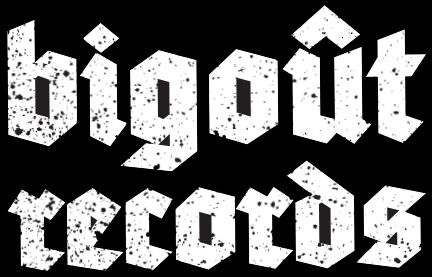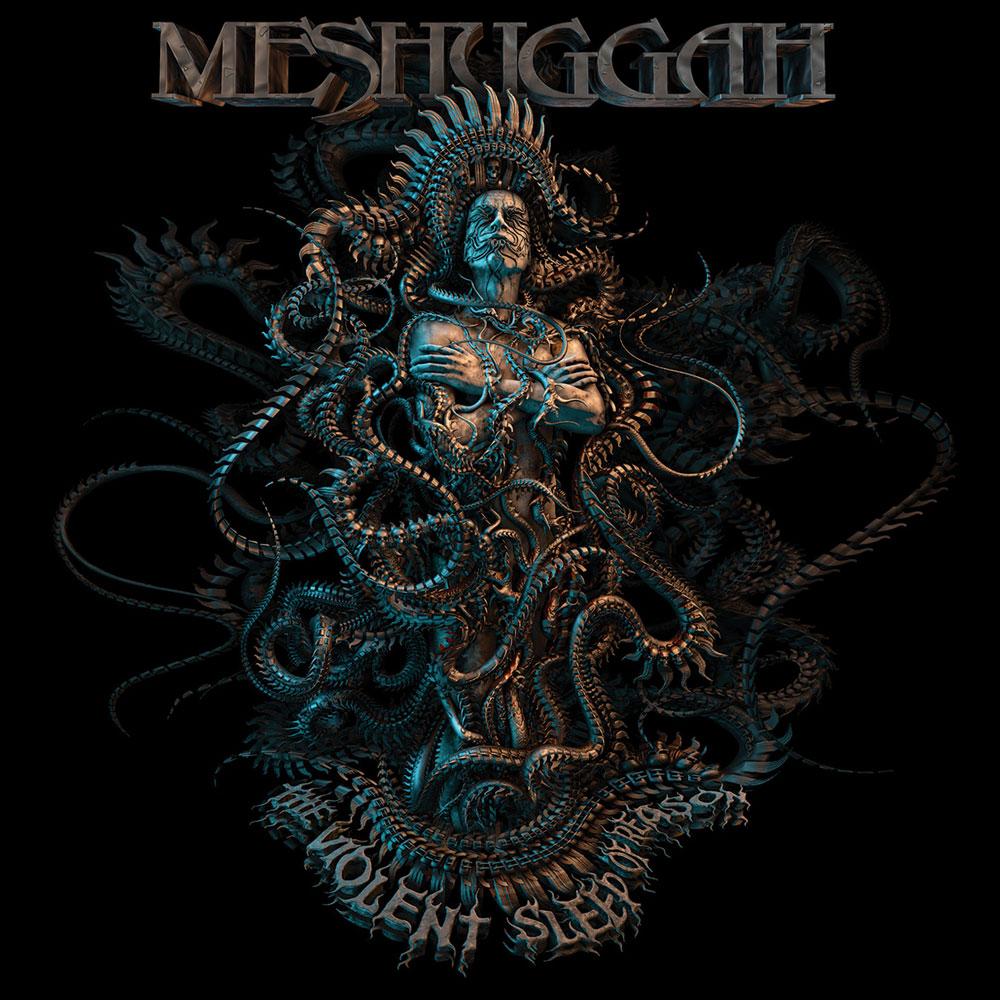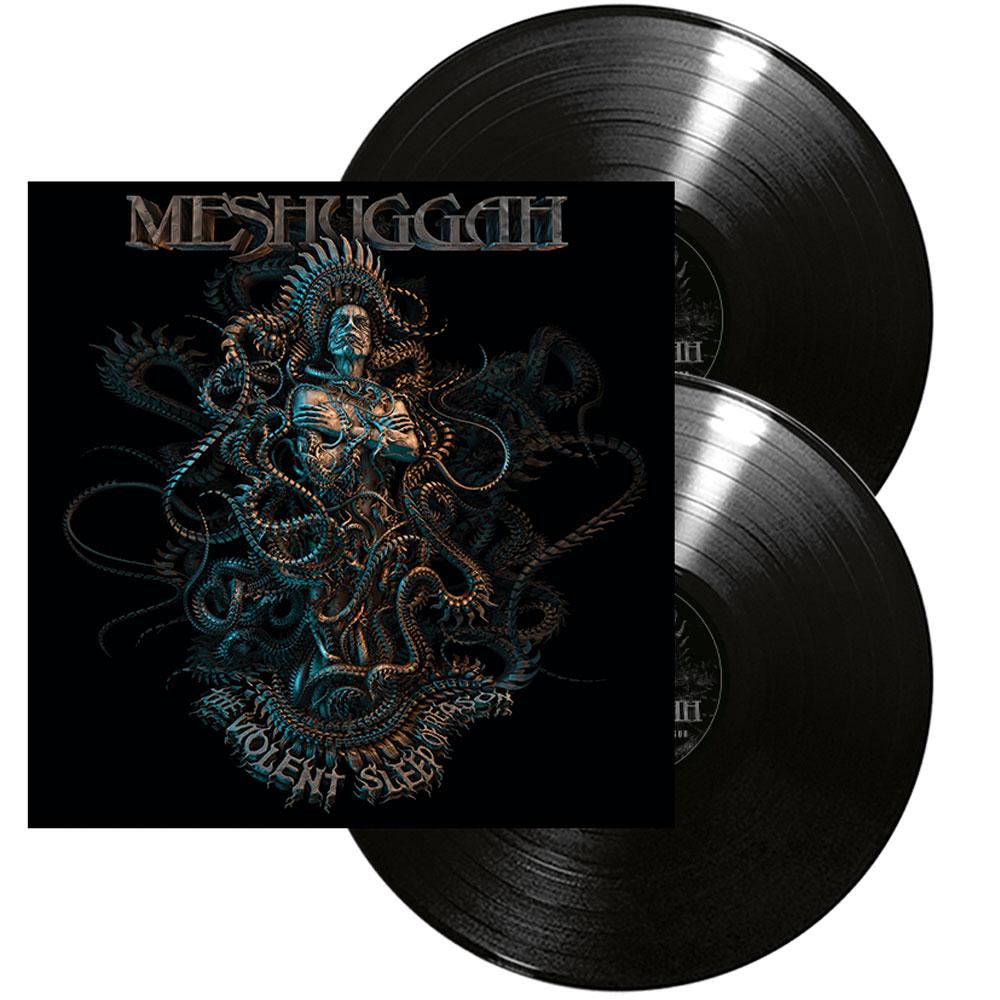MESHUGGAH The Violent Sleep Of Reason – Vinyl 2xLP (black)
23.50 €
Nuclear Blast
Out of stock
Notify me when this product is available.
MESHUGGAH The Violent Sleep Of Reason – Vinyl 2xLP (black)
Pressing info : First pressing on black double vinyl LP.
In 2017, Swedish progressive metal pioneers MESHUGGAH will be entering their 30th year of existence, defying expectations on record as to the limitations of metal, and then proving their virtuosic prowess by taking their cathedral-complex compositions to stages all over the world through the band’s legendary long tour cycles.
It all began with 1991’s »Contradictions Collapse«, but the MESHUGGAH legend was established through the likes of 1995’s groundbreaking »Destroy Erase Improve« and the band’s third record, 1998’s »Chaosphere«. In 2002, MESHUGGAH issued »Nothing«, which sold over 110,000 copies in the US and garnered the band an arena tour slot with TOOL, high validation from the biggest and most discerning progressive metal band on the planet at the turn of the decade. »Catch Thirtythree«, »obZen« and 2012’s immense »Koloss« solidified the band’s reputation as creative mavericks raising the reputation of what metal could be, resulting in status as the creators and godfathers of an entire progressive music style known as djent – even if the band has a somewhat ambivalent relationship with that tag or tags of any sort.
»The Violent Sleep Of Reason«, the band’s eighth full-length studio album, finds MESHUGGAH building upon their legacy for fearless metal sculpting within the context of extreme metal, but also recapturing some of the magic and excitement specifically within the aspect of performance, finding flow and groove that would be a challenge for any lesser band to locate, given such technical geometric madness at mischievous hand.
There’s a distinct methodology, says drum master, writer and spokesman for the band Tomas Haake, that was put into motion to help the band achieve the level of “swing” the attentive fan will feel as he makes his way through »The Violent Sleep Of Reason«.
“Basically, there are more natural sounds. On the last few albums, everything’s been kind of fixed and machine-like. For this one, it’s all live takes, something we haven’t done in many, many years. And that definitely goes against the stream of what you see in technical metal. So we went back towards a more old school approach, actually rehearsing and knowing the songs before we would record them. Because over the last few albums, we really didn’t know the songs well enough to play them as a band by the time we were recording them, because of time pressure, politics, income, finances, etc. For the last few albums, we’d record drums first, and then add guitar and everything and make it sound perfect, whereas this time we routined the songs well and were able to do all live takes. Jens was in one room, the guitarists were in one room, Dick was sitting right next to my drum set and he had an amplifier in the next room. So in that sense it’s old school; the methodology is similar to what metal bands were doing in the ‘80s and 90s. And that vibrancy comes out; it’s a very audible difference, sloppier if you will, but at the same time it brings an energy that I personally feel was lacking over the last few albums. They were too perfect – this is less perfect, but in that sense, more alive.”
The personal challenge taken on by the band produced fortunate byproducts as well, or, rather, it inspired them to “de-machine” other aspects of the technical MESHUGGAH juggernaut.
“Yes, we also changed our philosophy toward guitar sounds,” explains Haake, who nonetheless confirms that the band is still using eight-string axes, and for the most part, tuning down half a step to achieve that torrid MESHUGGAH guitar grunt. “The last few albums have been almost digital, where you re-amp it afterwards and stuff like that. So it’s basically a clean signal that you then can pick and choose from digital after-effects etc.; you can tweak things at a later point. And with this album, it was six speakers, six heads in a super-loud room, and each cabinet was miked using different heads – Marshall heads, Orange heads – and then mixing it up a little bit depending on the song. If there was a song that was a little slower and sludgier, we might add more of the Orange amp to get a little more of that stoner sound. And if it’s a bit more metal, we’d maybe use the Marshall head. So we did have the chance, the opportunity, to mix and match for each song so the guitar sound is not exactly the same for every song. And that’s a huge difference from »Koloss« and »obZen«, for example, where every song had the exact same drums and guitar sound.”
But the end result is still a relentless onslaught of MESHUGGAH – patented ideas, save for one gorgeous and atmospheric respite, at the close of ‘Stifled.’ Framing the pacing and contours of record, Tomas says, “None of the songs sticks out like ‘Bleed’ did on »obZen«. These songs are over the top. Well, »Koloss« didn’t really have that either. To me, it doesn’t really have hits – it just has really cool songs! (laughs). They’re a little wilder on this album. Dick and I wrote most of the material, and we were kind of going for something that’s nuts. We wanted to hear something that we hadn’t heard ourselves do before.”
“And that’s also a completely new thing,” continues Tomas. “Dick was never involved in the songwriting prior to this album. That creates a huge difference in the choices and the tonalities of the riffs. He comes from a totally different background than Marten and Fredrik. He has a freer sense of what you can do and what you cannot do; he’s less inhibited by rules, tonality-wise. He comes more from a 12-tone, kind of free form and jazzy ‘anything goes’ background.”
At the lyrical end, highlights include the title track, which, set to a massively heavy arch-djent rhythm, speaks of “the violent outcome of not dealing with what is going on, the violent implications of being asleep. It’s actually based on a Goya painting that is called ‘The Sleep Of Reason Brings Forth Monsters.’”
A second highlight is strident opener and longest song on the album, ‘Clockworks,’ which is strafed by a typically super-human drum performance from Haake. “That’s more about looking to yourself and who you are and things you want to change about yourself. And then in the context of how your mind works, as a clockwork. It’s the idea of taking out all the little pins and wheels and everything and kind of rebuilding it to make you function in a different fashion. Like the title track, it ties into what’s going on in the world right now. Even though I am complaining in my lyrics about how we’re not dealing with what’s going on in the world, I’m also part of the problem because I sure as hell don’t do much about it either. So that song is a look in on myself, at things that I wish that I could change about myself.”
“Listen to tracks like the vertigo-inducing ‘Nostrum’ and the slower if equally circular and note-dense ‘By The Ton,’ and it’s easy to understand why it’s been four years since a MESHUGGAH album. But mind-numbing complexity of the material is not the only reason,” explains Haake.
“No, well, I would say first of all, it takes us a lot of time to write. And we’re very bad at focusing; we’re very bad at multitasking. We never wrote one single riff on a tour bus. So if you have a touring cycle of two, two-and-a-half, three years, there’s not going to be anything written in that time period. And that’s just how we all function. We need to have a break, like, okay, time out now – nothing new for a year. We need to write for one year. But you want to tour as much as possible for an album. »Koloss«, for example, we toured for like two-and-a-half years. And then you write. And when we do finally write, we scrutinize those songs over and over and over and over, and change things as we go. So in a lot of the songs, maybe only one riff was actually there originally. So writing for us does take a long time, no doubt. I would say the average is like two months of writing, to make one song.”
As a result, the band’s erudite and intelligent fan base “get something that they don’t really hear in any other bands. On the first album you still hear a lot of METALLICA and ANTHRAX and Bay Area kind of thrash metal influence. We knew that we sounded a bit like that, but we were aiming for something we hadn’t heard in any other band. And that’s still the main fuel. We’re not trying to write your average metal song. We’re not trying to write catchy songs. We’re not trying to write hit songs (laughs). We’re just trying to write something that is cool, that we haven’t heard before, and hopefully our fans haven’t heard before. And that gets harder and harder, because by now, there are so many fucking awesome musicians and so much great music out there. But it would seem like the followers that we do have, the people that have kept buying our albums and stayed with us for a lot of years, are not typical metal fans. The crowd we have is diverse. We have a lot of geeks and nerds and weirdos, and they are beautiful ones, you know? We have a lot of people with talent, and a lot of people that are interested in music as art, and not just an event.”
But it’s not lost on Tomas that MESHUGGAH is making daunting progressive music, music where melody is subservient to jackhammer rhythm, as evidenced by the way that even his lead singer, Jens Kidman, is situated within the maelstrom that is MESHUGGAH…
“Like all of us, he’s a tool,” reflects Haake. “He’s the perfect tool for the job. We really all like music where you sing, you know, where there’s singing, and we all love singers. Personally, I think the voice is the most empathic instrument in the world. You hear some people sing and you’re like, oh my God, that’s the coolest instrument in the world to me. But at the same time, what we’re trying to do is not that. Just like the guitars and me as a drummer, he’s a rhythmic tool that also adds aggression, if you will. We’re not aiming for vocals that are trying to really enhance the song or create a certain vibe. Jens has got – as I do as a drummer – he’s got an on-off switch. I mean, people think that I can play jazz, but I can’t play jazz! – I can do this! I can play MESHUGGAH. That’s what I’ve been doing my whole life. And the same thing for him. He has an on-and-off switch and that’s what he does. He can’t sing like, ‘Oh, hey baby’ – he roars. Or he’s silent, you know? (laughs). So, he’s just like the rest of us; we’re not after much dynamic – it’s just basically on or off.”
So would Tomas then acquiesce to the idea of MESHUGGAH as metal’s reigning enemies of melody?
“In a sense, yeah. I mean, there is definitely melody and melodic thought put into tonalities and things like that, but at the same time, we’re not going for anything pretty. Not really. Sometimes there’s a little bit, where we go, ‘Oh, that’s beautiful,’ but then we just fuck it up again. You give it a little bit of something sometimes, but basically we’re not going for niceness (laughs).”
Produced by MESHUGGAH; engineered by Tue Madsen, Puk Studios, Kaerby, Denmark
MESHUGGAH related
-
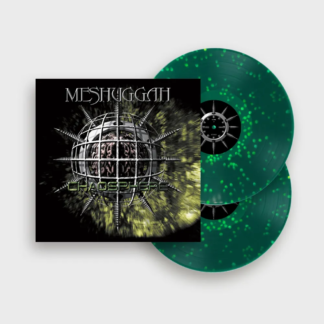
MESHUGGAH Chaosphere – Vinyl 2xLP (green yellow splatter | white orange black marble)
32.50 € Select options This product has multiple variants. The options may be chosen on the product page -

MESHUGGAH Immutable – Vinyl 2xLP (orange black circle | black)
30.00 € Select options This product has multiple variants. The options may be chosen on the product page -
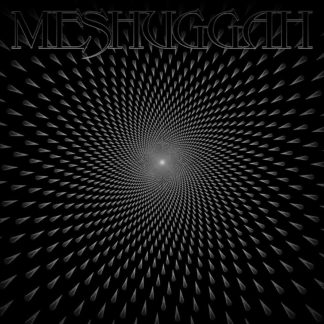
MESHUGGAH Meshuggah – Vinyl LP (black)
19.00 € Add to cart -
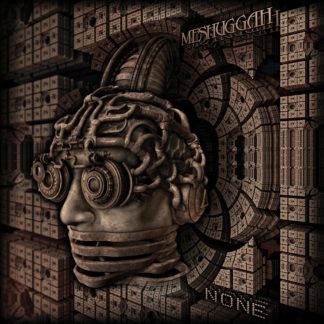
MESHUGGAH None – Vinyl LP (black)
19.00 € Add to cart -
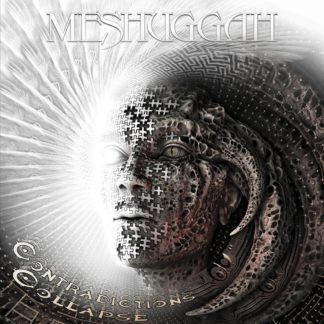
MESHUGGAH Contradictions collapse – Vinyl 2xLP (black)
24.00 € Add to cart
Related products
-
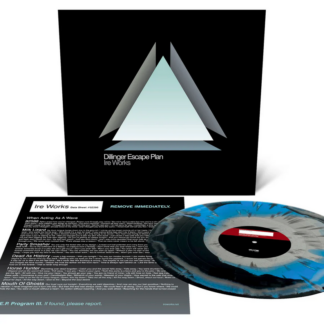
THE DILLINGER ESCAPE PLAN Ire Works – Vinyl LP (black cyan blue metallic silver merge neon magenta white metallic silver splatter)
22.50 € Add to cart -
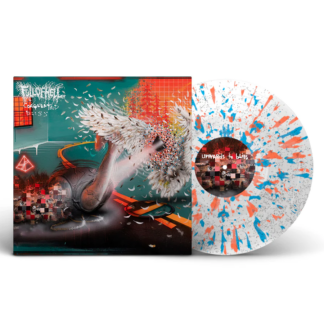
FULL OF HELL Coagulated Bliss – Vinyl LP (clear with splatter)
23.50 € Add to cart -
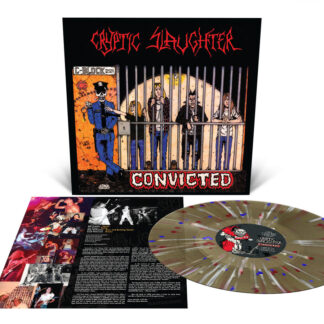
CRYPTIC SLAUGHTER Convicted – Vinyl LP (black ice red white cyan blue splatter)
22.50 € Add to cart
